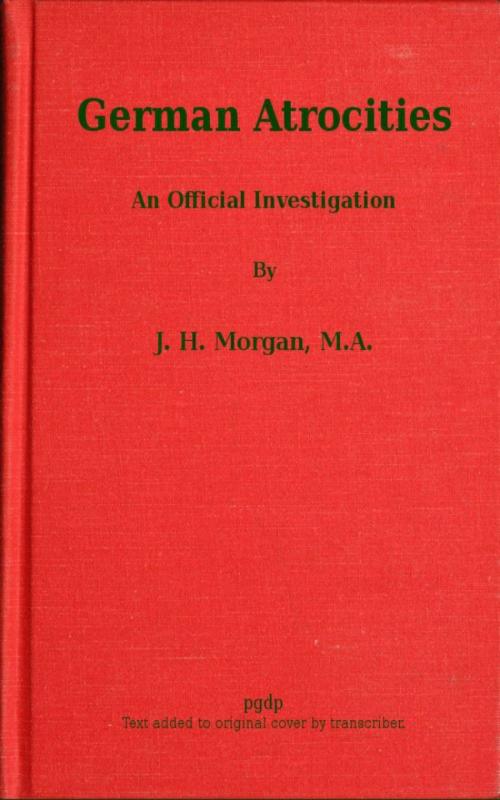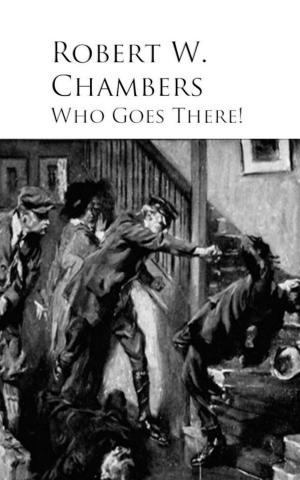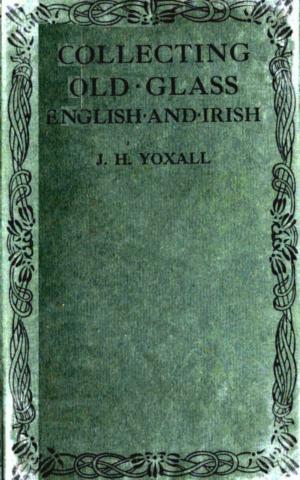| Author: | J. H. Morgan | ISBN: | 9783736415775 |
| Publisher: | anboco | Publication: | September 26, 2016 |
| Imprint: | Language: | English |
| Author: | J. H. Morgan |
| ISBN: | 9783736415775 |
| Publisher: | anboco |
| Publication: | September 26, 2016 |
| Imprint: | |
| Language: | English |
The second chapter of this book has already appeared in the pages of the June issue of the Nineteenth Century and After. At the time of its appearance numerous suggestions were made—notably by the Morning Post and the Daily Chronicle—that it should be republished in a cheaper and more accessible form. A similar suggestion has come to us from the Ministry of War in Paris, reinforced by the intimation that the review containing the article was not obtainable owing to its having immediately gone out of print. Since then an official reprint has been largely circulated in neutral countries by the British Government, and an abbreviated reprint of it has been published by the Parliamentary Recruiting Committee in the form of a pamphlet. The Secretary to 2 the Committee informs me that considerably over a million and a half copies of this pamphlet have been circulated. At the suggestion of Mr. Fisher Unwin, and by the courtesy of the editor of the Nineteenth Century, the article is now republished as a whole, but with it is published for the first time a documentary chapter containing a selection of illustrative documents, none of which have hitherto appeared in print. For permission to publish them I am chiefly indebted to the Home Office and the Foreign Office. Needless to say, the original article also was submitted to the Home Office authorities, by whom it was duly read and approved before publication. These documents by no means exhaust the unpublished evidence in my possession, but my object has been not to multiply proofs but to exemplify them, and, in particular, as is explained in the following chapter, to supplement the Bryce Report on matters which, owing to the exigencies of space and the pre-occupation with the case of Belgium, occupy a comparatively subordinate place in that document. This volume may, in fact, be regarded as a postscript to the Bryce Report—it does not pretend to be anything more.
The second chapter of this book has already appeared in the pages of the June issue of the Nineteenth Century and After. At the time of its appearance numerous suggestions were made—notably by the Morning Post and the Daily Chronicle—that it should be republished in a cheaper and more accessible form. A similar suggestion has come to us from the Ministry of War in Paris, reinforced by the intimation that the review containing the article was not obtainable owing to its having immediately gone out of print. Since then an official reprint has been largely circulated in neutral countries by the British Government, and an abbreviated reprint of it has been published by the Parliamentary Recruiting Committee in the form of a pamphlet. The Secretary to 2 the Committee informs me that considerably over a million and a half copies of this pamphlet have been circulated. At the suggestion of Mr. Fisher Unwin, and by the courtesy of the editor of the Nineteenth Century, the article is now republished as a whole, but with it is published for the first time a documentary chapter containing a selection of illustrative documents, none of which have hitherto appeared in print. For permission to publish them I am chiefly indebted to the Home Office and the Foreign Office. Needless to say, the original article also was submitted to the Home Office authorities, by whom it was duly read and approved before publication. These documents by no means exhaust the unpublished evidence in my possession, but my object has been not to multiply proofs but to exemplify them, and, in particular, as is explained in the following chapter, to supplement the Bryce Report on matters which, owing to the exigencies of space and the pre-occupation with the case of Belgium, occupy a comparatively subordinate place in that document. This volume may, in fact, be regarded as a postscript to the Bryce Report—it does not pretend to be anything more.















